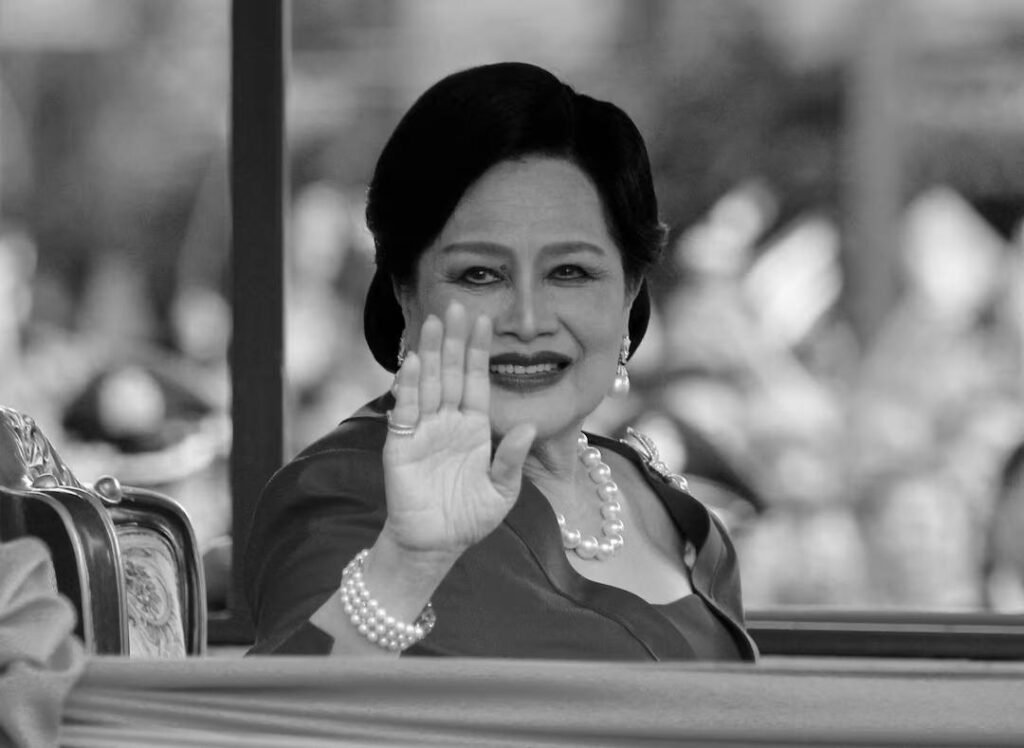The Kingdom of Thailand mourns the passing of its beloved former Queen Sirikit, who died at the age of 93. Her life embodied decades of royal dedication, compassionate service, cultural stewardship, and unwavering support to the Thai people and monarchy. Queen Sirikit’s death marks the end of an extraordinary chapter that shaped modern Thailand’s identity and heritage.
Early Life and Marriage
Born on August 12, 1932, Sirikit Kitiyakara was the daughter of Prince Nakkhatra Mangkala Kitiyakara and Mom Luang Bua Kitiyakara. She met King Bhumibol Adulyadej when he was studying in Switzerland. Their marriage in 1950 heralded the beginning of a lifelong partnership that would influence Thailand’s social, cultural, and political landscapes for over seven decades.
Role as Queen Consort
As Queen Consort to King Bhumibol, Sirikit rose to prominence not only as a regal figure but also as a beacon of maternal care and national pride. Her position transcended ceremonial duties; she championed numerous welfare and development projects aimed at uplifting rural communities and preserving Thai culture. Her efforts in support of handloom and Thai silk artisans earned her international recognition, exposing traditional crafts to global markets and revitalizing Thailand’s cultural industries.
Philanthropy and Cultural Impact
Queen Sirikit’s hands-on approach to charity initiatives endeared her to millions. She focused extensively on health, education, and poverty alleviation, personally overseeing projects and encouraging volunteerism. Her patronage of the arts was pivotal in sustaining Thailand’s cultural heritage, from music and dance to craftsmanship and culinary traditions. Through these actions, Sirikit forged an indelible connection with her people, embodying the compassionate spirit expected of the monarchy.
A Symbol of Stability and Tradition
Throughout Thailand’s rapid modernization, political changes, and social evolutions, Queen Sirikit remained a symbol of continuity and tradition. Alongside King Bhumibol, she provided stability and reassurance in turbulent times. The royal couple’s presence was instrumental in fostering a sense of unity and national identity, qualities that remain vital in contemporary Thailand.
Legacy and National Mourning
Following King Bhumibol’s death in 2016, Sirikit continued to serve as Queen Mother, maintaining her presence in the public eye and supporting royal duties. Her passing prompted deep mourning across the nation, with tributes pouring in from government officials, foreign dignitaries, and citizens alike. The mourning period reflects not only grief but also profound respect for a figure who dedicated her life to her country’s welfare and dignity.
Looking Forward
As Thailand charts its path forward, Queen Sirikit’s legacy offers lessons in service, resilience, and cultural preservation. Her life reminds Thais and the world of the powerful roles monarchs can play in social cohesion and national pride. While her physical presence is gone, the values she embodied and the work she championed will influence generations to come.
Conclusion
Queen Sirikit’s death at 93 symbolizes the closing of a significant era for Thailand—a life of grace, devotion, and steadfast love for her nation. Her contributions as queen, mother, and icon will forever shine in Thai history. As the country honors her memory, it renews its commitment to the ideals she stood for, reinforcing the royal family’s enduring place in the hearts of the Thai people.


